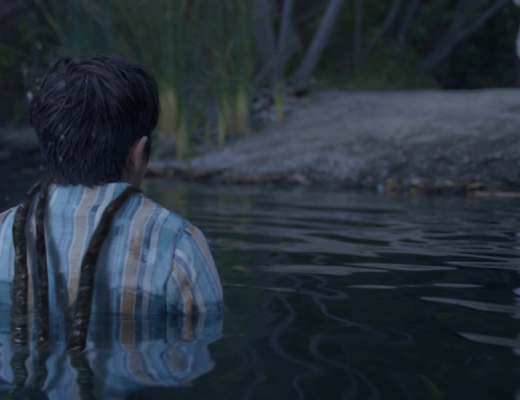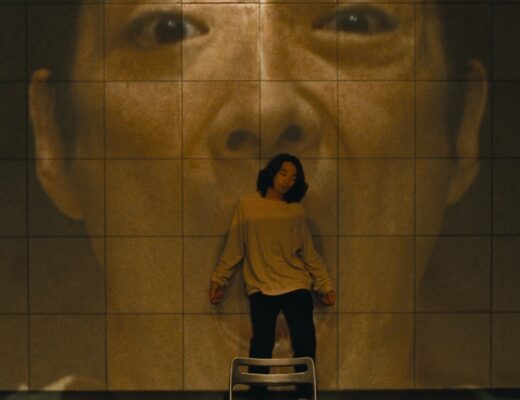I Was a Simple Man is a wildly contradictory affair, rife with unresolved ideas and a deluge a thematic material that find little purchase.
“Maybe we don’t deserve to go so easily” — this line is offered in response to the gruesome account of a suicide attempt that opens Christopher Makoto Yogi’s death rattle, I Was A Simple Man. It’s an offhand musing lent divine severity in the brief silence following it. The rest is fleeting suggestion; urban sprawl, traces of a prelapsarian past, the soundscape mottled by industrial noise before susurrating gently into a nighttime calm, settling on Masao (Steve Iwamoto). His twitching fingers and strained expression mercifully communicate untold suffering: here is a man knee-deep in it, yet still clinging to his life.
For Masao, the minimal commitment and routines of subsistence amidst the forested depths of Oahu have accommodated him well, serving as ample distraction from the untimely passing of his wife, Grace (Constance Wu), and further abandonment of his three children. Watched over by an apparition of Grace, he ventures inwards in a bid at confronting past failings and finding peace. Such a jumping-off point, unfortunately, isn’t much removed from Yogi’s 2018 debut, August At Akiko’s, which saw the development of a similarly rootsy animating spirit, as well as thrall to the mystical energies that have succeeded modernity’s homogenized cultural centers. Though the mentioned opening entices with its cater-cornered assemblage and sparing detail, Simple Man quickly retreats to the comforts of previous influences; slow cinema heavyweights Apichatpong Weerasethakul and Pedro Costa, whose interests largely track with this sort of twilight portrait of ancestral/familial specters and the half-spaces they cohabit amongst the living, are obvious cribbings.
Beyond the facsimiled imprints of celebrated works is a genuine effort on Yogi’s part to distinguish his film from a mold its ilk has been accused of over-reliance on. His close acquaintance with the territory infuses into it a sensorial vividity that pirouettes around select scenes: lovers’ hands clasped above a mound of dirt as waves crash in the near-distance, an arc of continuity scribed into the dissolve between a burning altar and the flowy, swaying movements of forest brush. Ultimately, however, these more memorable images remain few, subordinate to the competing impulses at play — repetitive keynotes and temperance of form, pitched against conceptual ambition. “When you let go of ritual, you can assume the magical,” we’re told at one point. The former takes regrettable precedence here: shots of seeping rainwater, an overfilled cup, and wind rippling across sugarcane fields are continually cycled back to and layered, so as to establish an elemental basis for the film’s tone-poem wanderings.
Problems arise when our immersion inevitably wears thin, and how better to resuscitate things than with a dash of memory-as-structuring-device? As Masao enters a reckoning with all that he’s missed in the throes of grief, narrative uniformity splinters, variously differentiated timelines now finding (imaginary) alignment such that flashbacks become marked by retroactive guilt, self-destruction, and personal indifference. It’s certainly a bold jig, especially in light of its late-film placement, but one completely lacking in the stylistic justification or modulation necessary to convey all this elegantly. Yet elsewhere, and like the concentric-circle painting Masao’s daughter Kati (Chanel Akiko Hirai) gradually fills in, the deluge of thematic material (Japanese nationalism, displaced identity, superstition and clashing traditions, adolescent romance, erasure of colonial histories) and spaced-out insularity ensures neither subject nor referent is examined with deserved closeness. The result is a wildly contradictory affair whose unresolved ideas find as little purchase as it sojourns across time.
Originally published as part of Sundance Film Festival 2021 — Dispatch 2.







